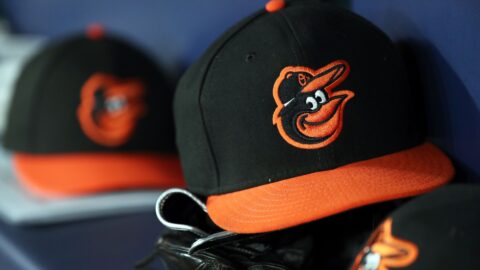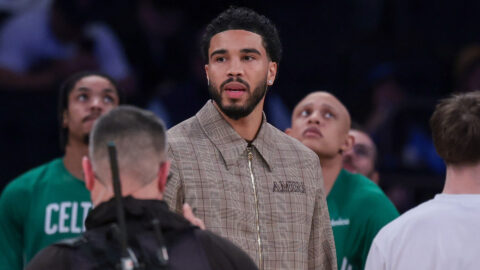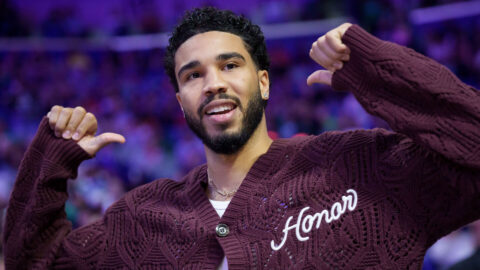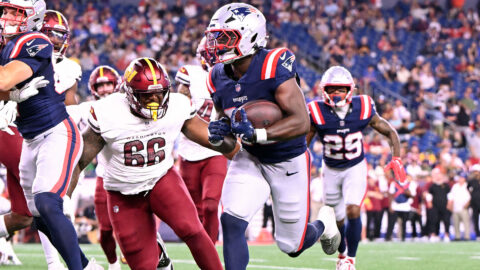LAKE BUENA VISTA, Fla. — For San Diego Padres general manager Jed Hoyer, the Adrian Gonzalez trade came down to a matter of timing.
Last season, as the underdog Padres lasted in the playoff chase until the final day of the season, Gonzalez was part of something special. There wasn't any chance he would be traded in the midst of that run.
Had Hoyer waited to trade Gonzalez during the 2011 season, a host of issues could impact the return for San Diego — injuries, market fluctuations, etc. Had he let Gonzalez become a free agent and taken draft picks as compensation there would be too much uncertainty, depending on which team signed him and what the talent level would be like in the 2012 draft. And had he waited even one more week some of the teams that were heavily involved in Gonzalez trade talks may walk away after having signed a pricey free agent.
There is risk involved with every maneuver, perhaps never more when you are dealing with a talent like Gonzalez. But for Hoyer, the risk-reward ratio was at its best when the Red Sox came calling.
"We felt that this was the right time to do it," Hoyer said Monday at baseball's winter meetings. "We were able to secure three prospects that we like a lot for our future. We're in a position where we need to do that, gaining young controllable players … We could've lost a significant return. Once we had a group of players we felt were worthy of trading for we pulled the trigger."
Pulling the trigger was never a question. It was just a matter of when. In meetings with Gonzalez and his agent John Boggs early this offseason Hoyer was convinced the cash-strapped Padres would be unable to retain their formerly franchise player beyond 2011.
Talks with the Red Sox were always underway but they intensified in October, when Boston GM Theo Epstein, Hoyer's former boss, became a bit of a pest.
"He was calling me a lot," Hoyer said of his friend and now partner in a blockbuster trade that has potentially altered both franchises. "Ultimately, they were the most aggressive and that's not surprising. Theo's thought very highly of Adrian since his days [in San Diego]. He's always a big fan. It's obvious they had a fit."
The Sox were one of three teams that were heavily involved in trade talks, Hoyer said. A few other teams were "kicking the tires," but never serious contenders. Boston and the other two teams, possibly the Cubs and White Sox, stayed in the mix late due to the size of their wallets.
That wealth is the primary reason for the Red Sox' ability to pull it off in the end.
"The real challenge was the extension and the only teams that were willing to part with the kind of talent necessary were the teams that could sign him to an extension," Hoyer said. "The only teams Adrian was going to sit down and talk with were going to be the major markets … the teams that could afford him."
Of course, the "kind of talent necessary" was a factor, too.
Hoyer said he had other offers involving more minor leaguers and several involving major league players, which the Red Sox' eventual package did not include. Those offers, however, fell off dramatically after the first or second name. Hoyer said he did not want a package with "depth" for the minor league system but rather multiple players he feels can be successful at the major league level.
Then, once Epstein made it clear that Casey Kelly was available, talks heated up in a hurry.
"Ultimately, for me, getting Kelly was very important," Hoyer said. "Getting a guy that can be in the rotation for a long time. I didn't see any reason to do a deal without him. Getting a depth type of deal wasn't our goal and once Kelly was included it was a lot easier to get done."
Hoyer's time in the Red Sox' organization working under Epstein certainly helped. He was around when the three prospects were drafted and knows they have the makeup mentally to be solid players for years to come. The talent is obvious.
"There's anxiety you have in any trade," he said. "The unknown. You don't know the player, you don't know the personality, you don't know the toughness. All of that is taken out of the equation [in this trade]. We know these guys. We know they have a great makeup and so that's a huge variable we don't have to worry about."
Hoyer admitted that it "doesn't necessarily feel good" having to make a trade like this and lose a superstar-caliber player. But knowing he did it at the right time gives him some peace going forward.



